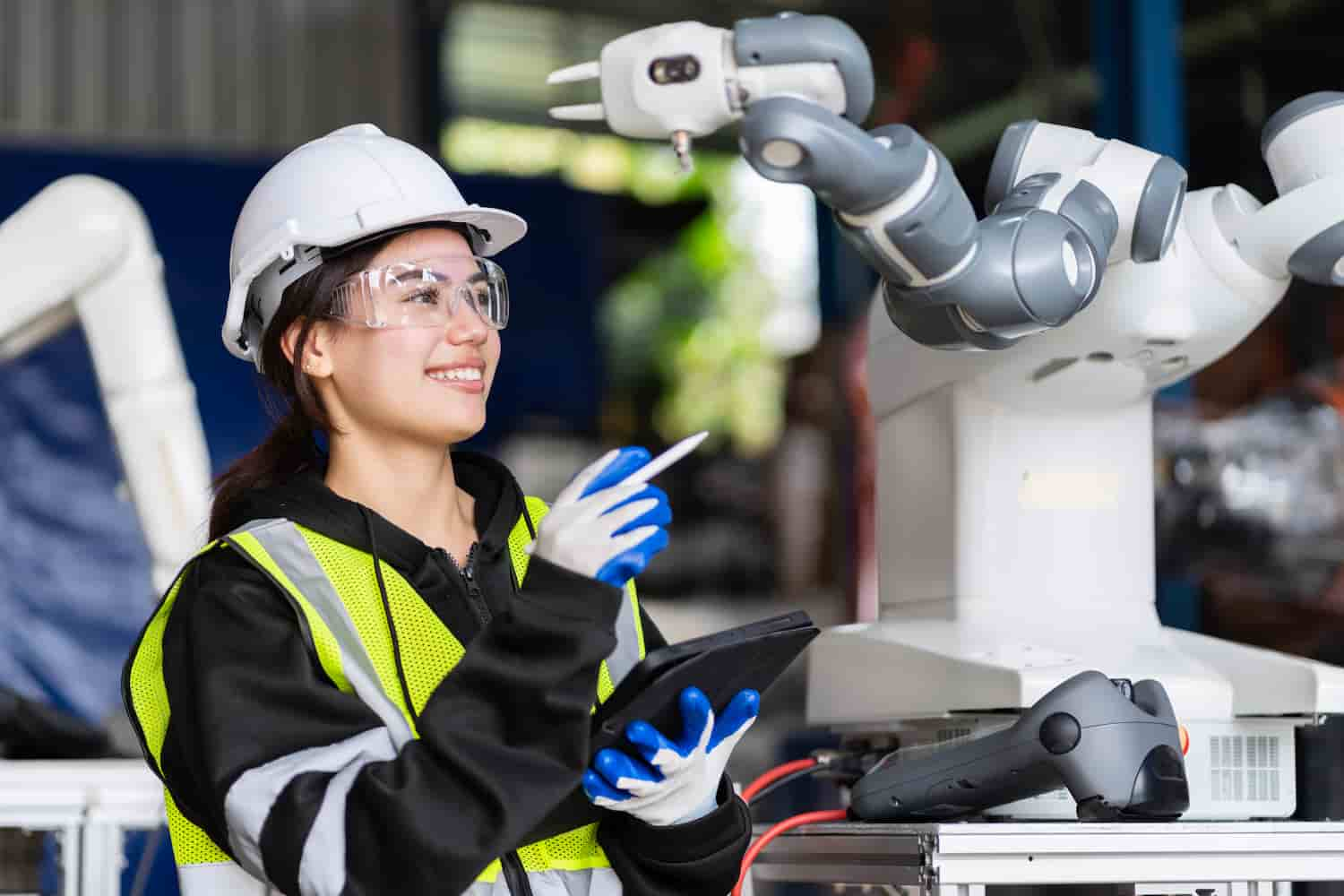
India is not just another country adopting artificial intelligence; it's a nation that is reshaping its social and economic landscape with a unique approach. As we approach the 2030s, India is not just keeping pace with the global AI evolution; it's leading it. Surpassing even the most technologically advanced nations, India is on the path to becoming a global leader in daily AI usage. The innovative applications of AI across its diverse sectors are not only surprising global onlookers but also setting a benchmark for unconventional uses of technology. This technological revolution, unique in its approach and implementation, holds invaluable lessons for the entire world. As AI becomes intertwined with daily activities and industries, India is not just participating in the global AI evolution—it is steering it, promising a future where technology and tradition merge to unlock massive potential.
India's Strategic Demographic Advantage
India's Prime Position in the AI Frontier


India's growing role in AI development and adoption
In recent years, India has emerged as a significant player in the global landscape of artificial intelligence (AI) development and adoption. With its burgeoning tech industry, vast talent pool, and increasing investment in research and development, India is steadily positioning itself as a hub for AI innovation.
One key aspect of India's growing role in AI is its vibrant startup ecosystem. Numerous AI startups have emerged nationwide, focusing on various healthcare, finance, agriculture, and education applications. These startups leverage AI technologies to address unique challenges and drive efficiency in diverse sectors.
Furthermore, India's renowned IT services companies are also actively embracing AI. They are integrating AI capabilities into their solutions to offer enhanced services to clients worldwide. This adoption of AI by established players further solidifies India's position as a significant contributor to the global AI market.
India's government is also crucial in promoting AI development and adoption. Initiatives such as the National AI Portal and the National Strategy for Artificial Intelligence aim to foster collaboration between academia, industry, and government to accelerate AI innovation in the country.
Additionally, India's rich talent pool in data science, computer science, and engineering provides a strong foundation for AI research and development. Leading academic institutions are offering specialized courses in AI, contributing to the creation of a skilled workforce capable of driving AI innovation.
Overall, India's growing role in AI development and adoption signifies its potential to shape the future of AI technology globally. As the country continues investing in research, fostering innovation, and nurturing talent, it is poised to make significant contributions to advancing AI globally.
Industries being revolutionized by AI in India


AI in Agriculture
In the heart of India's vast agricultural expanse, a silent revolution is underway, driven by the power of artificial intelligence (AI). Agriculture is a lifeline for millions, and India ranks among the world's top agricultural producers. Hence, the sector plays a pivotal role in the nation's economy and global food security.
Yet, amidst this importance lies a myriad of challenges. The need for increased productivity to meet the demands of a growing population clashes with the threats posed by climate change, necessitating innovative solutions to ensure both food security and environmental sustainability.
Enterprising teams at Google, such as AnthroKrishi and Google Partner Innovation, have embarked on a mission to address these challenges head-on. Guided by Google's AI Principles, their focus is on pioneering sustainable agricultural initiatives, starting with India.
At the heart of their efforts lies the concept of "landscape understanding," a groundbreaking approach leveraging satellite imagery and machine learning algorithms to dissect agricultural landscapes. By delineating fields and identifying crucial features like irrigation systems and vegetation, this technology lays the groundwork for informed decision-making.
Expanding upon this foundation, the research teams delve into "landscape monitoring," employing AI models to provide detailed insights into individual field performance and future requirements. From identifying crop types to assessing water availability, these models give farmers actionable data to optimize resource usage and mitigate risks such as drought.
AI's influence is profound throughout the agricultural cycle, transforming practices from precision farming to disease detection. AI technologies bolster crop resilience while minimizing environmental impact by analyzing soil health, optimizing irrigation, and aiding in early disease identification.
Water management emerges as a critical area where AI shines, particularly in regions facing water scarcity. AI systems optimize irrigation schedules by analyzing climatic data and soil moisture levels, reducing water wastage and enhancing crop yields.
The impact of AI extends beyond individual farms, permeating the entire agricultural ecosystem. Access to precise field data enables better decision-making, making agricultural financing more accessible and enabling governments to support farming communities more effectively. Moreover, these insights drive innovation in India's rural technology sector, fostering the development of tools and practices for a more efficient and sustainable future.

AI in Education
In Indian education, a profound shift is occurring, propelled by the infusion of artificial intelligence (AI) into various educational domains. The Central Board of Secondary Education (CBSE) has partnered strategically with tech giants IBM and Google, recognizing the urgent need to prepare students for an AI-driven economy.
Empowering educators with digital tools has become imperative, mainly as education increasingly relies on online platforms. In partnership with Google, CBSE provides teachers nationwide free access to essential Google products like G Suite for Education and Google Classroom. This initiative aims to facilitate blended learning experiences, combining traditional classroom methods with online resources, benefiting an estimated 10 lakh teachers in 22,000 schools nationwide.
This collaboration has garnered praise from notable figures like Shri. Ramesh Pokhriyal Nishank, Hon'ble Minister of Human Resource Development, highlights digital literacy's importance in today's educational landscape. Echoing these sentiments, Google CEO Sundar Pichai announced a significant investment of ₹75,000 crores in the Google for India Digitization Fund, with a focus on leveraging AI to advance education and address societal challenges, aligning with Prime Minister Narendra Modi's vision of Digital India.
In parallel, CBSE introduced artificial intelligence as a subject in classes XI and XII, developed in collaboration with IBM, marking a proactive step towards equipping students with future-ready skills. Initiatives like the IBM EdTech Youth Challenge and the AI for Better India hackathon further nurture talent and innovation in AI, offering internships and mentorship opportunities.
Integrating AI into India's education system signals a pivotal shift towards fostering digital literacy, innovation, and societal impact. Through strategic partnerships and initiatives, India is poised to prepare its students for success in an AI-driven future, ensuring they thrive in the evolving educational landscape.


AI in Manufacturing
In the vibrant realm of India's manufacturing sector, Artificial Intelligence (AI) emerges not just as a buzzword but as a dynamic force reshaping the industry landscape. Here's a closer look at how AI is revolutionizing manufacturing:
Smart Manufacturing Methods:
AI empowers machines to analyze, strategize, and make informed decisions. Factories leverage AI algorithms to optimize production schedules in response to real-time shifts in demand, enhancing operational agility.
Industrial Automation:
Indian manufacturing firms are increasingly embracing AI-driven industrial automation technologies. These innovations enhance product quality, reduce labor costs, streamline manufacturing processes, and enable real-time equipment health monitoring, bolstering overall efficiency and productivity.
Efficiency and Sustainability:
AI promises to boost manufacturing efficiency through automation and data-driven insights significantly. By fostering the concept of zero-waste manufacturing and promoting closed-loop supply chains, AI contributes to sustainability efforts within the sector.
Digital Transformation:
Indian manufacturing companies are at the forefront of adopting analytics and AI across various business functions. With a current adoption rate of 54%, this trend underscores a growing recognition of the transformative potential of AI-driven digitalization strategies.
Future Growth and Innovation:
Forward-thinking industry leaders recognize that resilience, transparency, and sustainability are integral to future growth prospects. Embracing innovation and prioritizing faster time-to-market strategies are essential for maintaining competitiveness in an evolving market landscape.
Our Office
GREER
South Carolina, 29650,
United States
South Carolina, 29650,
United States


